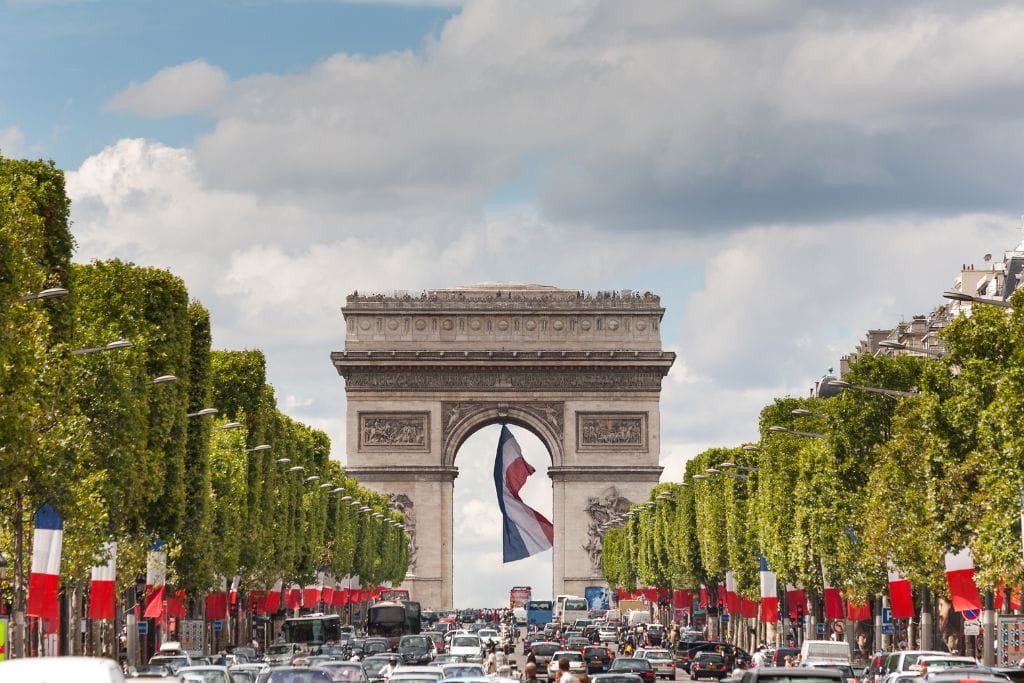How to Avoid Paris Syndrome: 9 Truths About Paris (2024)
Paris is both an incredibly popular and controversial city. While it attracts millions of tourists every year for its beauty, vibrancy, culture, and history, Paris has also been the host to a phenomenon known as ‘Paris Syndrome’. If you’ve ever encountered this term before or have heard about it in passing then you might be wondering what it is and if it’s something you should be worried about. In this post, I am going to share all the information you need to know about Paris Syndrome and how to avoid developing it. This way, you’ll hopefully be able to make the most of your time without walking away disappointed!
What Is Paris Syndrome?
Put simply, Paris Syndrome is a form of extreme and severe culture shock. Some people are so taken aback and disappointed by the reality of Paris that they experience serious medical complications. This phenomenon was initially recognized in 1986 by Japanese psychiatrist Hiroaki Ota. He was working at a hospital in France and noticed the phenomenon of several Japanese tourists, who experienced medical complications as well as psychiatric symptoms.
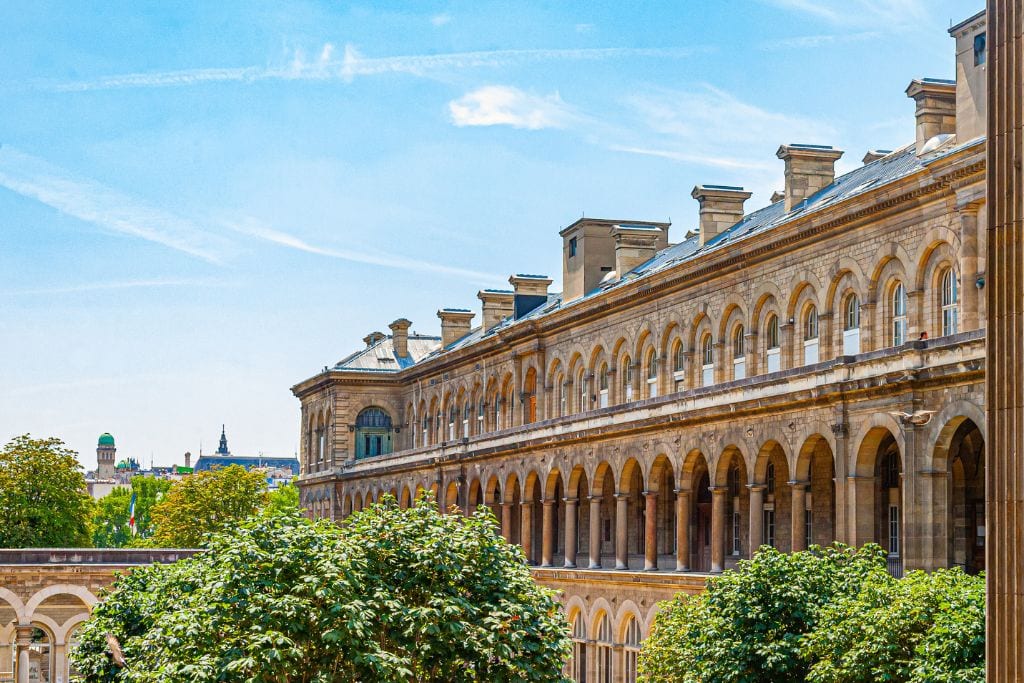
Paris Syndrome Psychology
Currently, there is an extremely limited amount of research available on Paris Syndrome, so I couldn’t confidently tell you about the psychology of Paris Syndrome. That said, one of the prevailing theories by physician Youcef Mahmoudia is that some tourists become so excited while traveling around Paris, that their heart rate accelerates, which in turn causes shortness of breath. And in some cases, this leads to hallucinations — one of the symptoms of Paris Syndrome.
🥐 NOTE: A syndrome is a defined group of medical signs and symptoms that are correlated to each other. They’re often associated with a particular disease or disorder.
Paris Syndrome Symptoms
The syndrome manifests itself through a range of psychiatric (mental) and psychosomatic symptoms. Just a little refresher — psychosomatic symptoms are physical symptoms that are caused by internal conflicts (i.e. stress) and usually lack a medical explanation. Psychosomatic symptoms of the syndrome range from dizziness, tachycardia (increased heart rate), heart palpitations, sweating, and even vomiting.
Meanwhile, in terms of psychiatric symptoms, they can include hallucinations, paranoid persecutory delusion (perception that they are being oppressed or prejudiced), derealization, depersonalization, and anxiety.
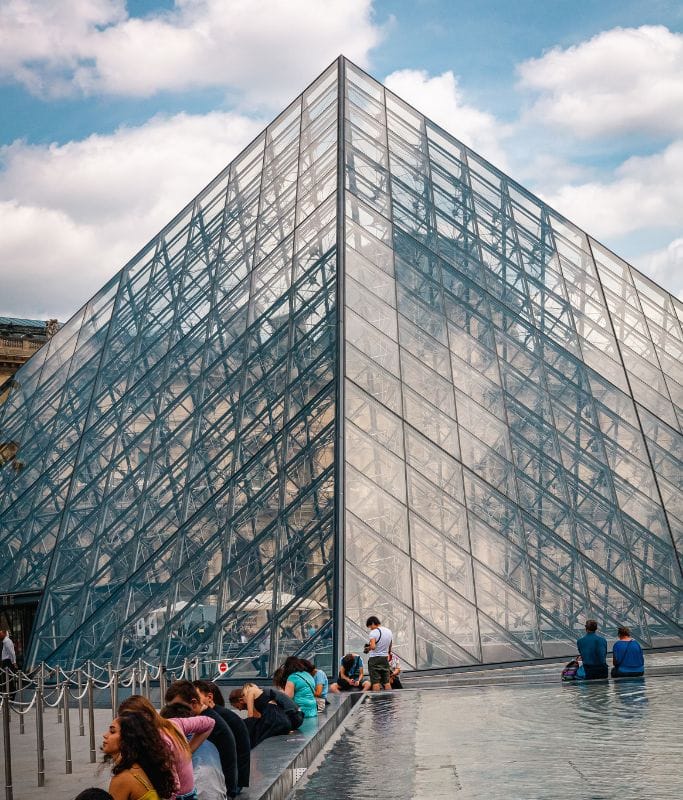
So lots of things that don’t sound particularly fun to experience…and you may be thinking that’s ridiculous! How could someone get this from traveling!? If you really think about it and even research it, these symptoms are not that different from what someone experiences when they have a panic attack. And, we know panic attacks happen all the time.
How Do You Get Paris Syndrome?
I’ll be completely honest — the chances of you developing Paris Syndrome are extremely low. Realistically, you’re way more likely to get hit by a car trying to cross the roundabout to reach the Arc de Triomphe or get your wallet stolen by someone like mine was… But again, for anyone curious, these symptoms are believed to be caused by the dissonance between a person’s idealized image of Paris and the reality that they encounter when they arrive in the city.
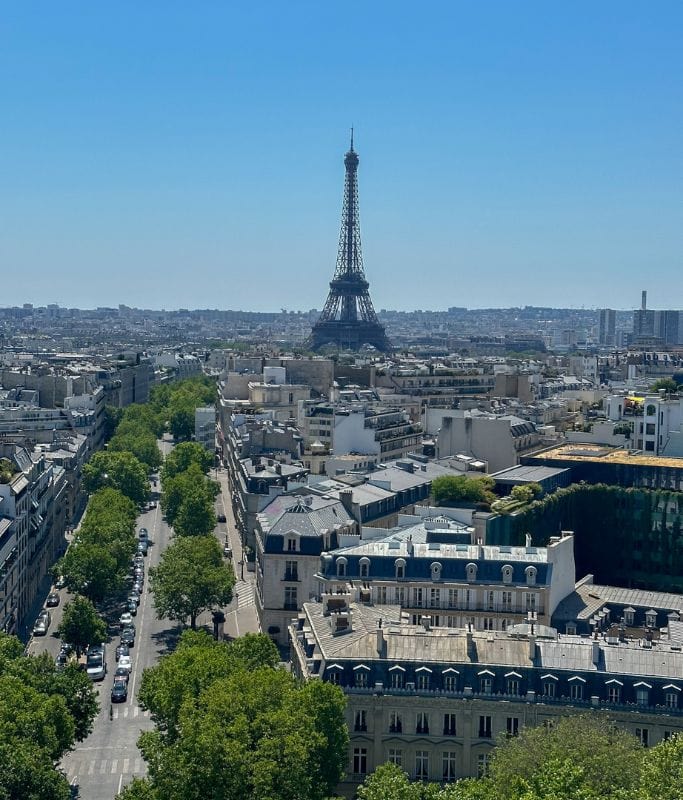
People may become exceptionally overwhelmed by the hustle and bustle of the big city, the cultural differences, and language barriers. It could be vastly different from what they’re used to back home. In turn, they become severely disappointed with the truth of Paris and may manifest the previously mentioned symptoms.
Why Tourists Are Disappointed by Paris
While the chances of you being so immensely disappointed with the French capital that you become one of the handful of travelers diagnosed with Paris Syndrome is quite low, this doesn’t mean that a good portion of tourists don’t walk away from Paris feeling some level of disappointment. And, as someone who has been to Paris nine times and lived in the city while studying abroad, I’ve experienced a lot and understand why people would feel at least a little disappointed. Don’t get me wrong, I love the city and try to travel through Paris at least every other year…But, Paris is far from perfect.
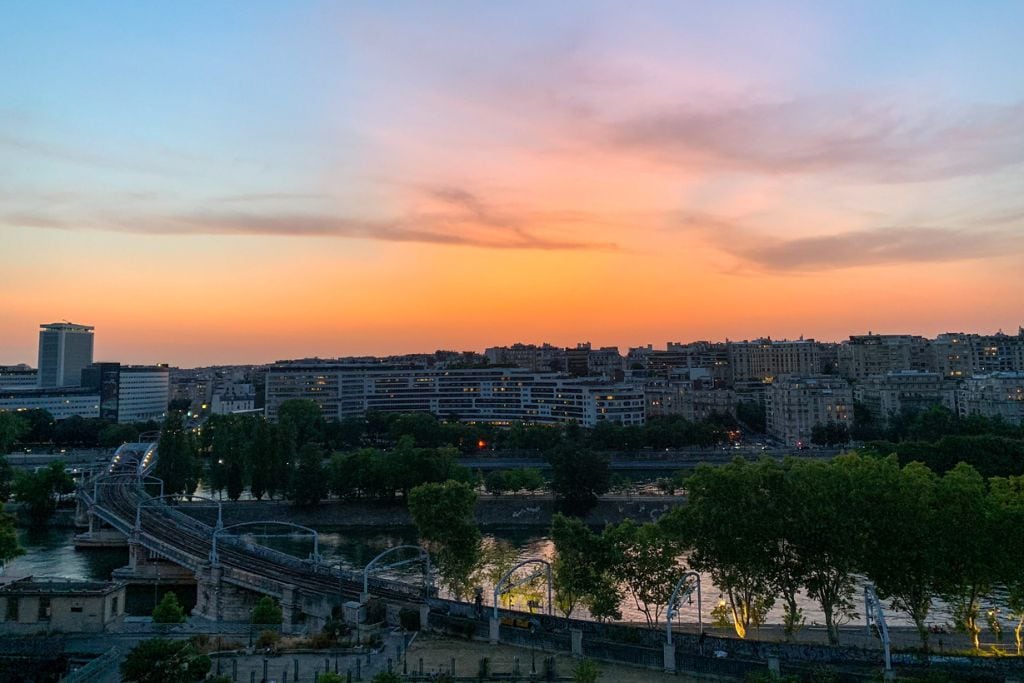
And, what makes people disappointed is usually the discrepancy between the real Paris and their expectations of the city, which are often heavily influenced by tourist advertisements, social media posts, TV shows, movies, etc. These portrayals often make it seem as if Paris is this glamorous city that’s full of romance where everyone is impeccably dressed, people look like models left and right, there’s amazing architecture everywhere you turn, and art and creative expression are flourishing. Essentially, anything that might be remotely attractive is sensationalized by the media.
As a result, first-time visitors come to the city expecting perfection, only to find out that this exaggerated and idealistic version of Paris they were promised doesn’t quite exist in reality. So, if you ask me, it’s not entirely surprising that a lot of people feel disappointed when they arrive in the French capital.
🥐 NOTE: Here’s a 2004 article from the French newspaper, Libération, that goes into depth about this overly positive portrayal. But, unless you’re fluent in French (kudos if you are 😅), you’ll need a translation extension to read it.
How to Avoid Paris Syndrome
But, just because some people feel disappointed doesn’t mean you have to be one of them — as corny as that sounds. From my perspective, it’s all about tempering your expectations. If you know what to generally expect, you won’t be so disappointed.
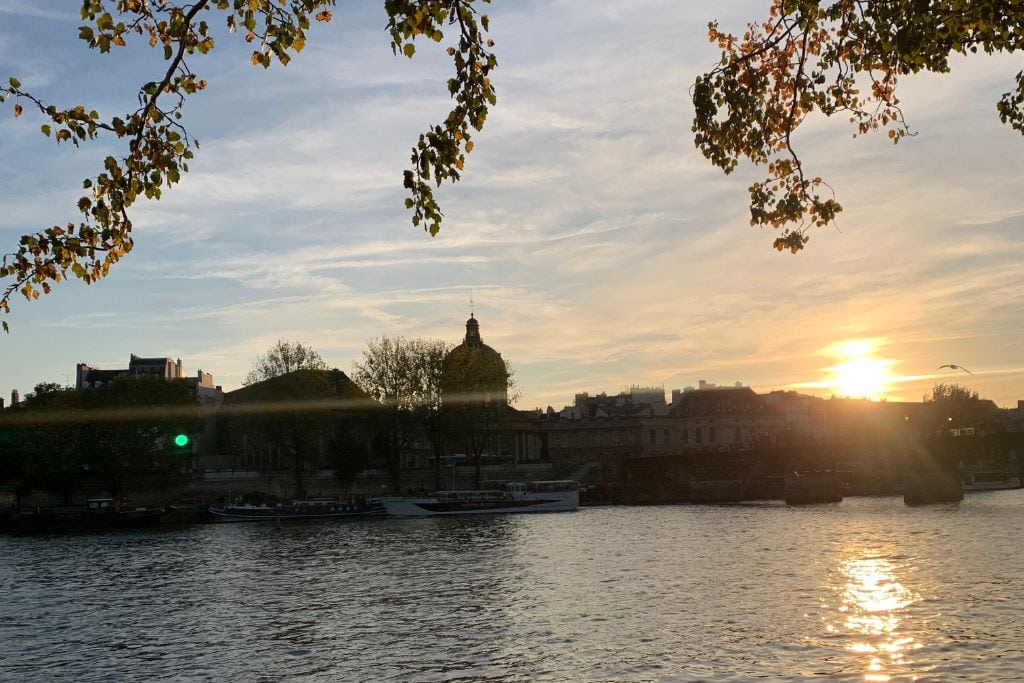
This is also why I try to research places a little bit and read about them in other people’s blogs. It helps me avoid any surprises when I get there and allows me to appreciate the city for what it is instead of constantly comparing it to some other version that doesn’t exist. Well, that and blogs are great for planning some semblance of an efficient itinerary lol. Anyway, in the spirit of transparency and avoiding disappointment to the point of being classified as Paris Syndrome…
9 Truths About Paris to Avoid Syndrome (2024)
Here are 9 truths of Paris and what you can honestly expect to witness and experience while visiting. I’ll present the myth or how the media likes to perceive Paris first and then the truth about Paris.
1. Paris Is Jammed Packed With Locals and Tourists
Myth:
You know how in the movies and TV shows, people say, “I’m going to walk around the Louvre or Musee d’Orsay.” And then, suddenly, the next shot pans to them walking around the museum and there’s like only 20 other people in the entire room… Like I get it, for the sake of the viewers, they gotta speed things up… but there’s this funny little misconception that you can easily see all the major Parisian tourist attractions in one day.
And, as the friendly neighborhood travel expert of my friend group, some of the most common questions I get amongst my friend group are, “How long do I need to spend in the city?” and “Can I just spend a day or two in the city?“
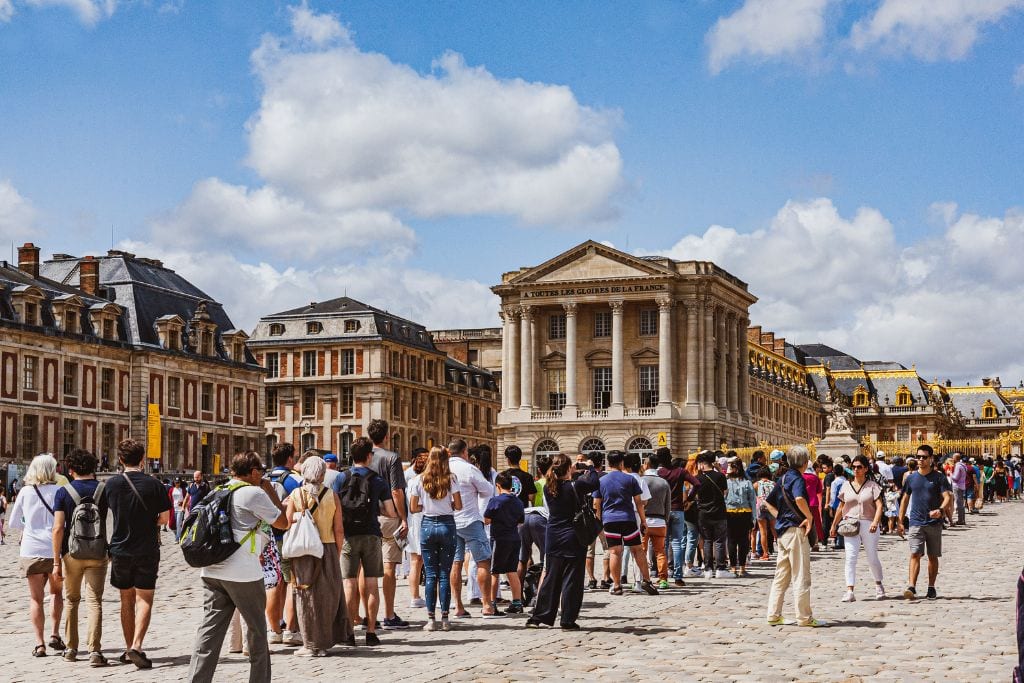
Truth:
The truth is that touring all the major tourist sites in one day is virtually impossible. There are tens of millions of tourists in Paris every single year. This equates to huge crowds pretty much at every single tourist site, long lines that are nearly impossible to avoid unless you opt for a private tour, and tons of foot and car traffic, especially if it’s morning or evening rush hour. All of these factors make it nearly impossible to see more than a couple of attractions in a single day.
And, even if you did manage to get from one place to another without too much trouble, you would be pressed for time. This would prevent you from actually enjoying and processing the beautiful sight you’re experiencing. Not to mention, you’d be absolutely spent by the end of it, which would just make the following day miserable!
So, my advice is to expect long queues and excessive crowds and just take your time. I know many people try to see as much as possible in as short of a period as they can, but slow travel is hugely underrated. You get to experience and discover so much more and really get a feel for the city.
Truths to Avoid Paris Syndrome
2. Paris is Relatively Dirty, Chaotic, and Loud
Myth:
A lot of people perceive Paris as a clean and beautiful city filled with stunning architecture and an abundance of romantic views. You may think gorgeous models are constantly strutting down the street and everyone is wearing high-end luxury fashion. It’s almost like a dream or fairytale — effortlessly perfect… Unfortunately, this is all true to a very limited extent.
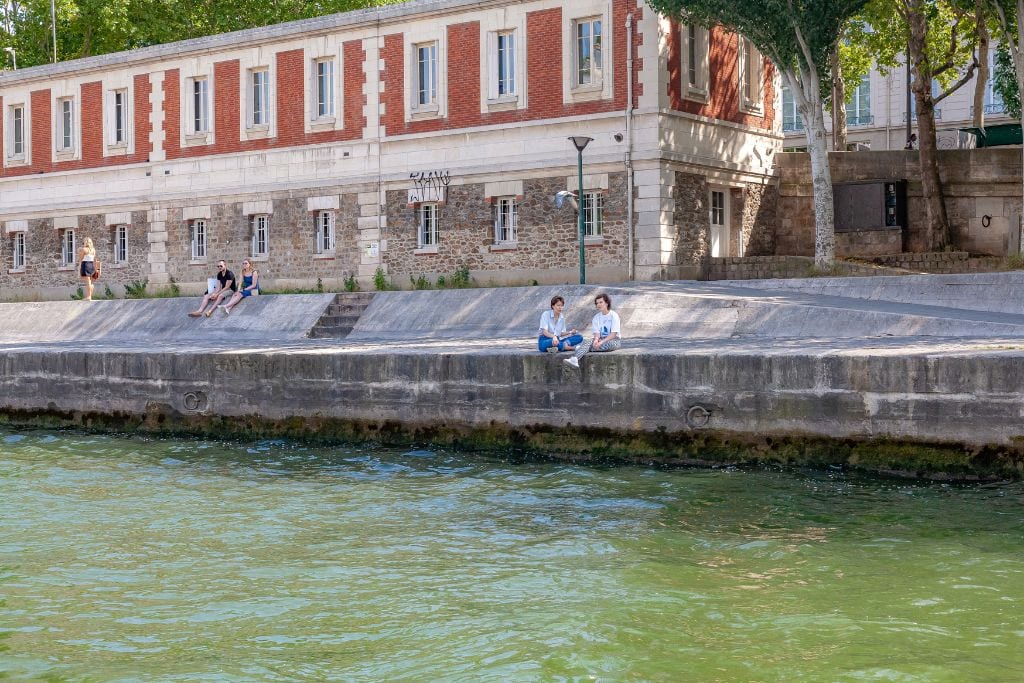
Truth:
Yes, Paris offers visitors stunning architecture and arguably has more romantic views than other major cities, like Milan… But, it is also dirty, chaotic, and loud in a lot of parts. For example, there are lots of homeless people sleeping along the streets. You will see dog poop along the cobblestone walkways because there aren’t exactly green spaces everywhere. And, if you get super lucky, Ratatouille and his friends may even pay you a visit at the metro station!
Other memorable experiences for me include visiting the Eiffel Tower in the morning while running. What I thought would be super beautiful because no one would be around so early turned out to be a fat reality check. I discovered that in the morning on any given day, you’ll see upwards of a hundred discarded alcohol bottles from the night before. You also notice trash strewn around the lawn everywhere.
Furthermore, the Seine River is far from clean. The water has a bluish-brown color, and you’d never want to swim in it like you would with the beautiful clear turquoise waters of the Rhône River in Geneva. I know this all sounds super depressing and you might be dissuaded to go, but I’m just telling you the reality of Paris. Some areas are less attractive. Not everywhere is like this and you can still find beauty in the city. But, it’s important to remember that it truly does take a herculean effort to keep a city as popular as Paris clean!
Truths to Avoid Paris Syndrome
3. Smoking Culture Is Big in the City
Myth:
The air quality in Paris is great and you’ll only see a few people smoking. This is in a similar vein to the last one about Paris being all clean… but I felt like it deserved an independent section because it’s not something most probably consider when deciding where to go. Plus, it became one of my biggest culture shocks.

Truth:
You will encounter a LOT of smokers, which can be an absolute shock to your system. I come from a household with no smokers and rarely encounter anyone smoking in California. Well, at least not in Southern California areas like San Diego. Meanwhile, in Paris, approximately every 5th person that you pass on the street is smoking or vaping. I inhaled so much secondhand smoke during the first few days I was in Paris, that my lungs burned. For a few days, it hurt to talk, take a deep breath, and cough. My throat simply wasn’t used to that level of smoke inhalation.
The sensation goes away after a few days, and you’ll adjust. But, it’s something to be aware of if you aren’t from somewhere where smoking is prevalent. And not to shame, because to each their own, I frequently saw moms pushing their kids in strollers while smoking too. So, it’s a pretty common sight throughout the city. The upshot — You can expect a fair amount of air pollution from smokers because the smoking culture is huge.
Truths to Avoid Paris Syndrome
4. It’s Not That Safe
Myth:
Unless you’re watching Liam Neeson in the movie Taken, you never really see the crime that happens in Paris in movies. It is more about love stories and accidental faux pas. Thus, a lot of people hold the perception that Paris is relatively safe, or at least it’s unlikely anything will happen to you.

Truth:
Unfortunately, this isn’t exactly true. I’m not saying that Paris is the crime capital of the world or anything but I would go as far as to say that Paris is not as safe as people make to like it seem. There should be a greater focus on safety in the city because petty crimes are INCREDIBLY common. Every day, hundreds of pickpocketing and theft reports are filed. And, unfortunately, I was a victim of a pickpocketing incident.
It occurred at the metro station and I 100% swear to you, I knew the exact moment it happened. All it took was a slight bump while moving through the throngs of people exiting the station. I immediately looked down since I had this horrible sinking feeling in my chest. Lo and behold, my wallet was gone. I’ll save you details of all the ugly tears that followed, but it was highly traumatic since I was solo-traveling abroad for the first time.
Another time, I was standing near the Arc de Triomphe and heard a ton of screaming. I looked over to find a considerable flurry of money in the air as someone was trying to run away… The moral of the story, take proper safety precautions and stay extra aware of your surroundings while in Paris.
Truths to Avoid Paris Syndrome
5. Paris is VERY Expensive
Myth:
Paris isn’t that expensive… I’ll be the first to admit that my guilty pleasure is watching Emily in Paris. As in I’ve binge-watched all three seasons four times. In the show, people see Emily, Camille, and Mindy always out at expensive parties, sporting couture clothing, and generally living it up in Paris. And while I understand the show is a form of escapism, it’s also wildly popular. As such, people who have never been to Paris may not realize how expensive it truly is.
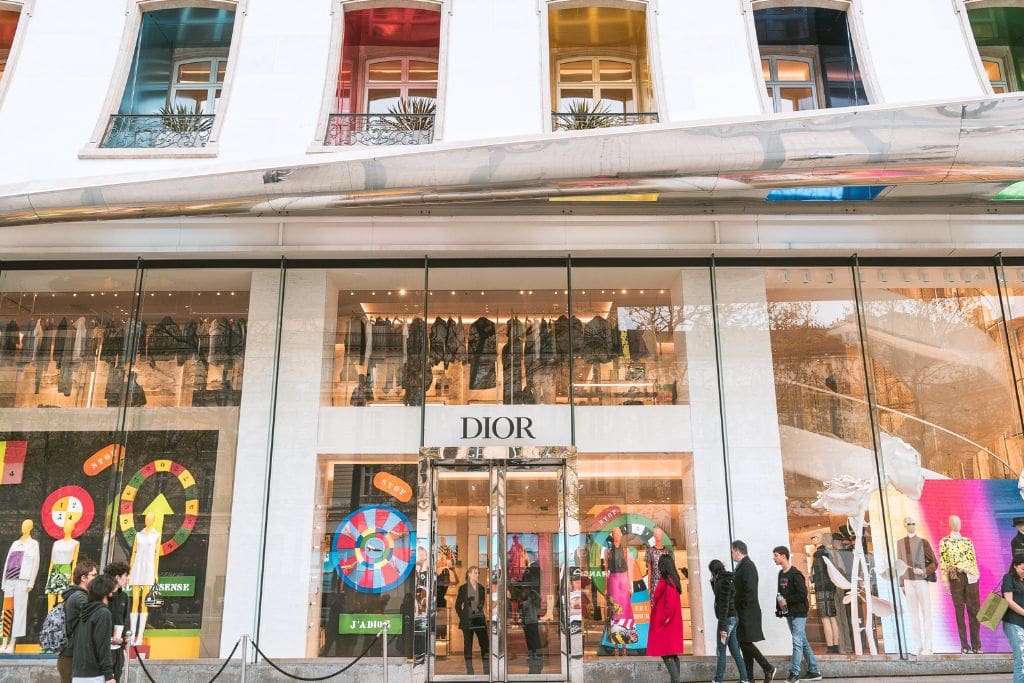
Truth:
Depending on your financial bracket, the myth statement might vary a bit, but Paris is pretty expensive. In fact, it consistently ranks as one at the top of the list of most expensive cities in Europe, right next to the likes of Zurich, Geneva, Amsterdam, Copenhagen, London, and Monaco. And, as someone who has been to every single one of those cities, I can 100% confirm the validity of it. Unless you’re flushed with cash, Paris will likely do a number on your bank account — and not the good kind.
To give you an idea of what to expect… the average price of a meal is $23-25 USD. And that doesn’t include drinks. Add a few drinks and desserts, and your tab will quickly increase. This isn’t to say Paris is wildly unaffordable. It just means that if you’re on a budget, it’s just going to take a bit of legwork, literally and figuratively.
Avoiding tourist traps and finding the real hidden gem places that are literal holes in the wall, takes effort. But, it can be done — I promise. Just remember to budget more cash than you think you’ll need for Paris. This city will make money vanish from your account in no time.
Truths to Avoid Paris Syndrome
6. Some People Will Not Be so Pleasant
Myth:
Locals in Paris are always welcoming and the customer is always right. In American culture, we love to focus on the customer first, and we often think that this is the same in all cultures. As such, it’s common to want to correct someone when you think they’ve got it wrong. Or, you may be tempted to call someone out when you don’t receive a certain level of friendliness and service.
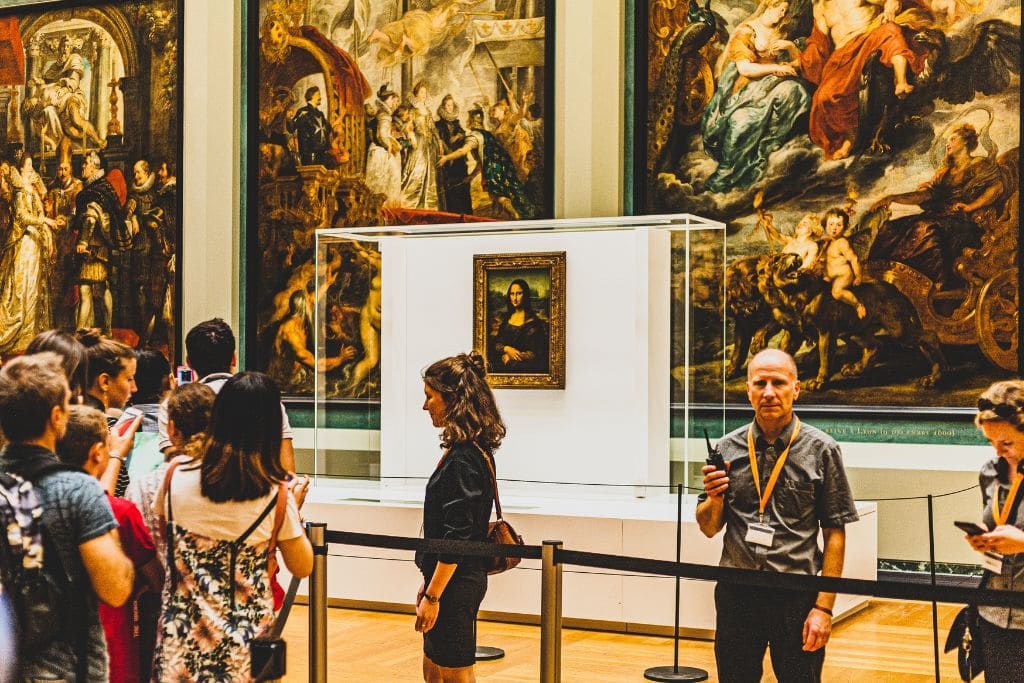
Truth:
However, this isn’t the case with Paris. While some people will be incredibly welcoming and helpful to tourists, there are still those who won’t be so nice. I’ve had a few experiences where locals were downright rude. I think they were frustrated because of the language barrier or maybe the fact their city was overrun with tourists… Regardless, these kinds of experiences can leave a sour taste in your mouth, and make you want to react. The important thing to remember is that you shouldn’t expect every interaction with locals to be pleasant and friendly.
Oh and the whole, I’ll practice French while I’m in Paris thing… yah, the part where French people immediately recognize you aren’t fluent in French and switch to English, that happens a LOT. Don’t be discouraged. It’s just easier and more efficient for them to speak to you in English sometimes.
My one piece of advice is to learn the basic phrases of French. Also, it goes a long way to say, “Bonjour,” when you walk inside any establishment, and to say, “Merci beaucoup, bonne journee, or bonne soiree,” as you leave. It shows that you’re attempting to learn and respect their culture!
🥐 NOTE: Merci means thank you. Bonne Journee means good day. And Bonsoir or bonne soiree means good evening.
Truths to Avoid Paris Syndrome
7. This Is NOT A True Representation of French Culture
Myth:
Paris allows you to experience true French culture. It’s no surprise that when people think of France, the very first place that comes to mind is Paris. We think of the Eiffel Tower, the Arc de Triomphe, Notre Dame, the Louvre, and many other iconic landmarks. Thus, our perception of French culture is often entangled with whatever we think of Paris. And while Paris does illustrate French culture to some extent, it’s far from an authentic representation.
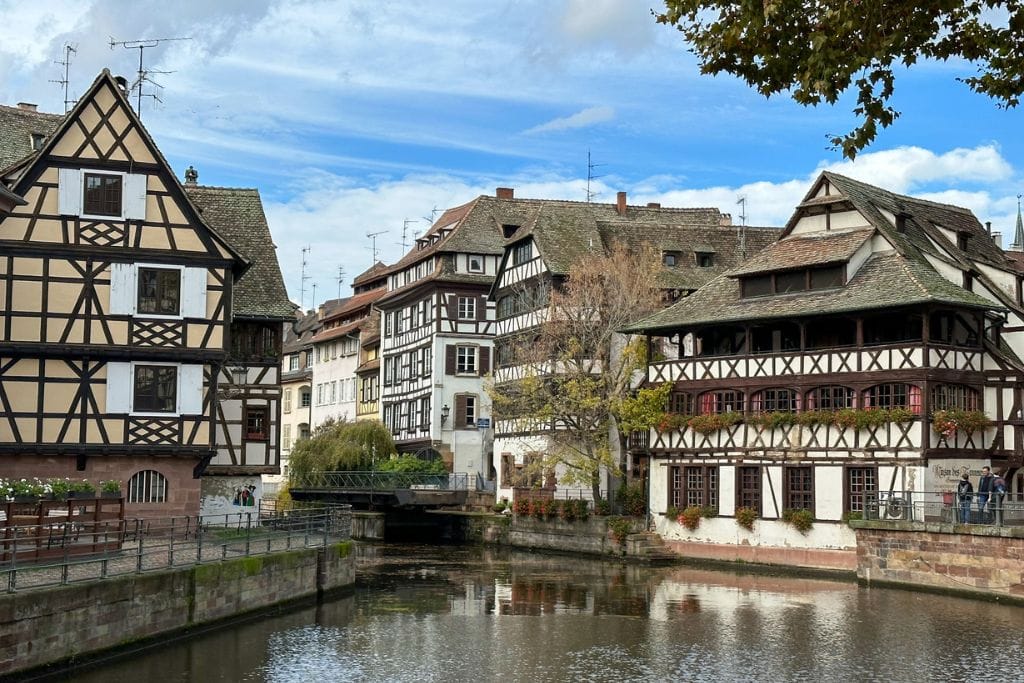
Truth:
In reality, Paris heavily caters to tourists and is just the tip of the iceberg. French culture is far richer and more complex than what you can find in the city of Paris. But, by exploring different regions, like Provence, Brittany, and Normandy, or even bigger cities like Nice and Lyon, you’ll realize that each region has its unique customs, dialects, cuisine, and landscape to offer. There are so many small villages and breathtaking coastal towns worth exploring. You’ll truly be taken aback by how different just about everywhere else in France is compared to the massive metropolis that is Paris.
And, if you can’t travel to areas outside of Paris, try and talk to the locals. Start a conversation and ask them how long they have been living in the city. Ask them what changes they have seen in recent years. This is how I learned stories of how the Paris of merely 10 years ago is vastly different from the Paris we see and consume today. It’s worth the time and effort if you want to form connections and immerse yourself.
Truths to Avoid Paris Syndrome
8. Dinner Is at 7 PM
Myth:
Restaurants are open all day, so you can eat whenever you’re hungry. I know Emily in Paris tries to address a few of the cultural differences between America and Paris, but one they don’t cover is this. Thus, if you’re coming from America or a non-European country and don’t do your research, you likely wouldn’t know that Parisian restaurants don’t stay open all day long.
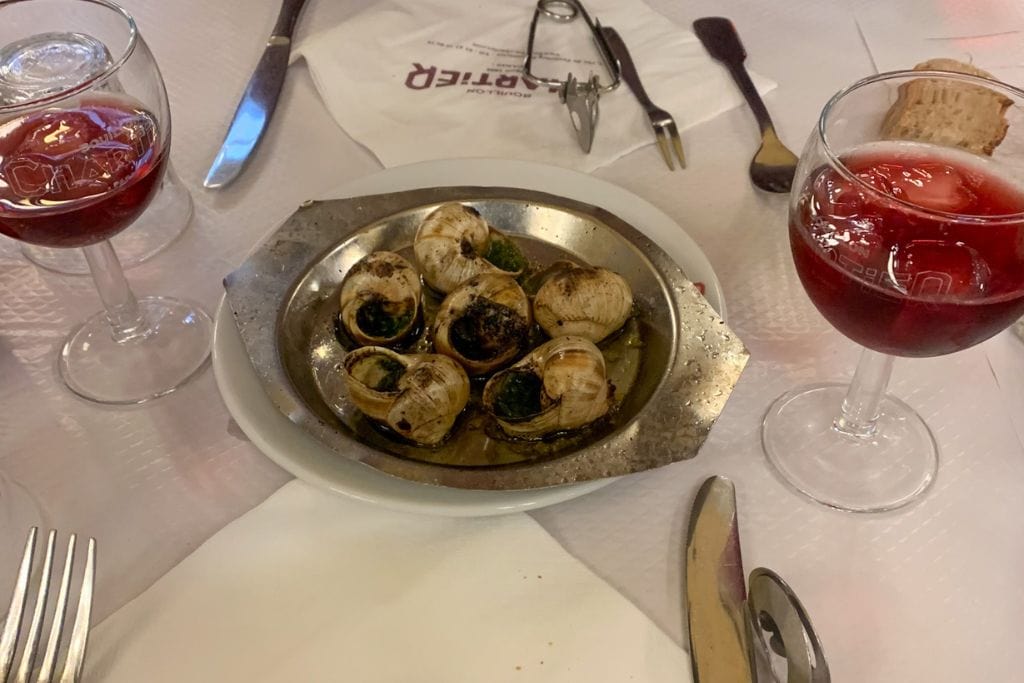
Truth:
The truth is that most restaurants in Paris open around 7 PM, so if you’re expecting to have dinner any earlier than that, chances are you’ll be disappointed. This was probably the second biggest culture shock for me when I first visited. I’m someone who is used to eating dinner between 5 and 6 PM when I travel because I like to start my day with an early morning run. As a result, I often eat and sleep earlier than most. So, when I initially went to Paris, I walked around everywhere trying to find a sit-down place to eat. But, finding a dinner establishment open before 7 PM proved to be just about mission impossible.
So, you’ll want to plan accordingly and make sure you won’t be too hungry between 2 PM and 7 PM. Most restaurants close between this time so staff can rest and take care of their needs before the night shift. But, the flip side is that compared to American establishments, restaurants in Paris normally are open until midnight or even past midnight. So, if you’re a night owl, this is fantastic news for you!
Truths to Avoid Paris Syndrome
9. Expect to Be Fashionably Late
Myth:
Paris is easy to navigate and move through. Yes, Paris has an amazing transportation network to the point that even Montreal has modeled its metro system after Paris. And yes, Paris is a walkable city in that you can easily and comfortably walk within a particular arrondissement. But, navigating the city as a whole is a different story.
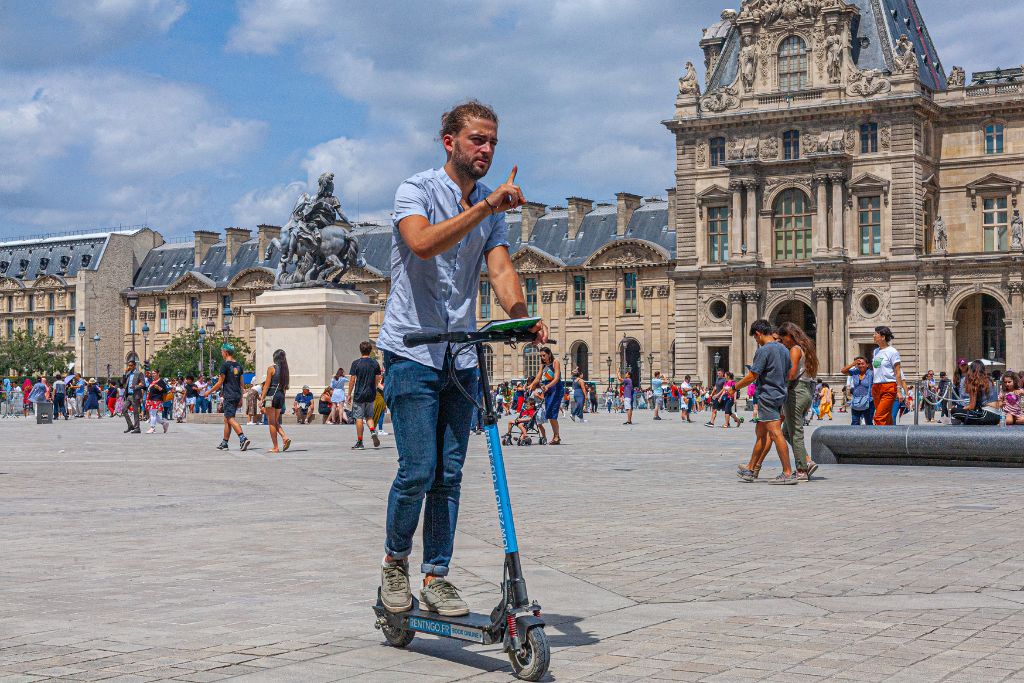
Truth:
Even though Paris is technically smaller than a lot of other major cities like (London, Stockholm, and Zagreb), it is time-consuming to maneuver around. Don’t get me wrong — I think the public transportation system is a work of art. Even so, Paris can make you want to scream. It’s kinda like how traveling a mile across Los Angeles via car can take you 45 minutes. You could probably walk there faster… that same kind of energy.
And because attractions are spread out far and wide, you’ll want to use all forms of public transportation or beware the death to your feet. Honestly, even with public transit, expect to be fashionably late. Google Maps can be misleading sometimes, and it’s easy to take the wrong metro line or bus route if you’re not familiar with it. Plus, traffic is exceptionally bad in the morning rush and evening rush. Thus, If you’re planning on getting somewhere at a certain time, plan for an earlier departure than usual with some room for error!
🥐 PRO TIP: My favorite app for navigating major cities is Citymapper! My friend (shoutout to Aurelien), introduced it to me in 2019, and it’s been a lifesaver. The app is better than Google Maps and will help minimize navigational mistakes!
Where to Stay in Paris
If you’ve made it this far and are still interested in visiting Paris (just with adjusted expectations 😉) feel free to check out a few different housing options! These are based on where I’ve personally stayed in the past and all the extensive research I’ve done for my past 9 trips to Paris.
You can also explore with the interactive map below. It provides up-to-date prices, and you can easily change the dates, the number of guests, and other filters to see what’s available according to your needs!
My Favorite Hostels in Paris
- the People Hostel Paris Nation | Lovely hostel I loved (see review) – ⭐️ 8.6 / 10
- The People Paris Marais – Another very popular hostel | ⭐️ 8.7 / 10
Lower-Cost Hotel Stays
- The Tribe – Saint Ouen – A newer 4-Star Hotel that I loved staying at | ⭐️ 8.6 / 10
- Hôtel Vic Eiffel: Well-decorated 3-Star Hotel w/ airport shuttle | ⭐️ 8.7 / 10
Mid-Range Hotels
- Chouchou Hotel: An fun, centrally located 4-Star Hotel | ⭐️ 8.9 / 10
- Hotel Monte Cristo Paris: Upscale 4-Star Hotel w/ indoor pool | ⭐️ 8.8 / 10
- Hotel Moderniste: Peaceful 4-Star Hotel w. great service and amenities | ⭐️ 9.6 / 10
- Check out my full review of this hotel here
Luxury Hotels
- Hotel Le Walt Paris: Boutique 4-Star Hotel w/ top-notch service | ⭐️ 8.9 / 10
- InterContinental Paris – Le Grand: Gorgeous 5-Star Hotel near Opera Garnier | ⭐️ 9 / 10
Paris Syndrome: FAQ
The validity of Paris Syndrome is a bit of a gray area as there isn’t a lot of scientific research available or being conducted. That said, I do think the phenomenon is real. It makes sense that people from hyper-clean, friendly, and efficient areas, such as Japan, might experience a higher degree of culture shock compared to those who are acclimated to a less organized and clean environment.
Paris Syndrome is not that common. Published research papers suggest that there are only about 20 cases a year. But, these are statistics from the early 2000s and are probably out of date.
My honest and biased opinion is yes. It’s worth visiting at least once to immerse yourself in the atmosphere, culture, and history, and observe the scale of the city. No city in the world does it quite like Paris! But, I also can recognize that it truly isn’t meant for everyone. So, for more insight into the city to determine if a trip is worth it, I have a post all about who I think would enjoy Paris and who would not.
For first-time visitors, I would recommend spending a good 4 – 5 days in the city. This will give you enough time to spread out activities, do a day trip to the French countryside to see a more authentic side of French culture, visit a couple of smaller museums in Paris, and take the city at a more leisurely pace. That said, even after 8+ trips to the French capital, there are still so many places and hidden gems I’m yet to discover. But, alas — there’s probably never enough time to see it all 🙃
Wrap-Up: 9 Ways To Avoid Paris Syndrome? (2024)
Paris Syndrome is a real phenomenon caused by unrealistic expectations of the City of Lights. And despite it being pretty improbable that you’ll develop it, it’s not outside the realm of possibility that you won’t experience a bit of disappointment with the reality of Paris. But, by taking the time to research, understand, and temper your expectations, you can ensure that your visit is filled with mostly positive experiences. So, with that, I hope you have learned a lot about Paris Syndrome and that your trip to the French capital is a wonderful one!
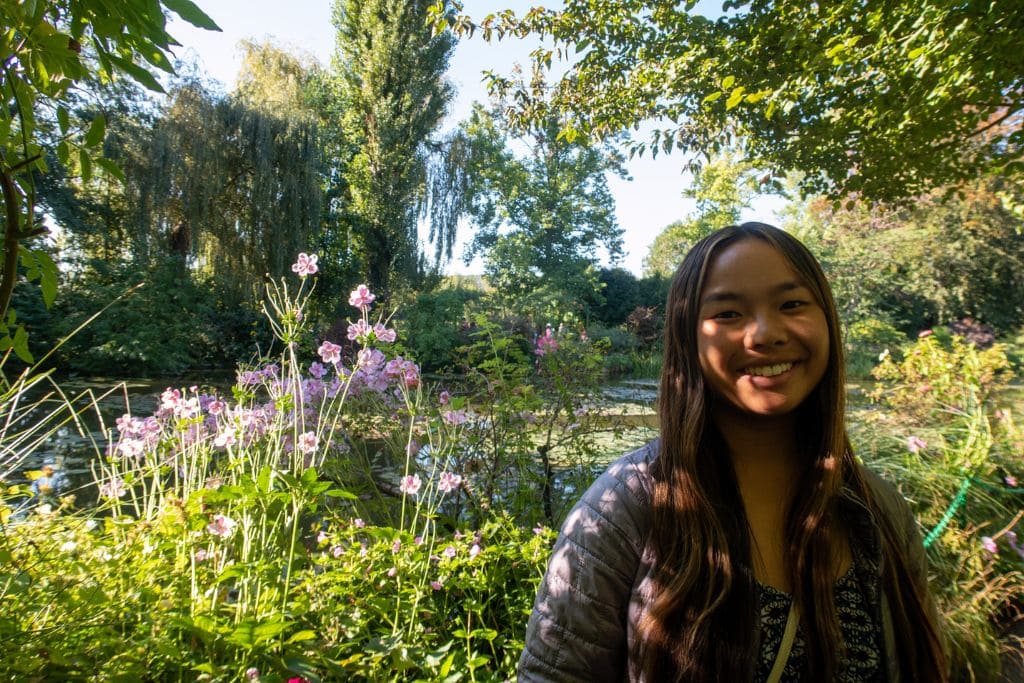
📸 Appreciation Note: You’ll notice that a few of the pictures in this post were taken by my friend good friend Sol! You can see more of his amazing photography here!
Explore France
- 🏰 Toulouse: Looking to travel off the beaten path? Travel to Carcassonne in the south of France! It’s easy to reach from Toulouse, and you’ll be transported to the 1500s.
- 🌞 Nice: Planning a trip to the seaside town of Nice? Don’t forget to indulge in all the regional Niçoise food and sample lots of rosés, which the region is most famous for!
- 🍷 Lyon: Thinking of seeing the Festival of Lights in Lyon, check out this city guide for visiting during the winter! Or, learn about the famed Beaujolais wine region that’s right outside the city!

